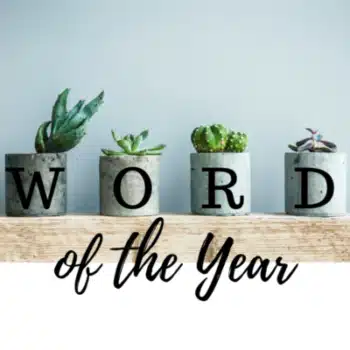As one year quietly slips into another, many Mississippians are also quietly contemplating resolutions for this new year of 2025. Others among us forego the traditional resolutions and focus on one particular word instead, a word to (hopefully) guide and guard our actions for the coming months and days.
Whatever the case, research shows that the majority of our thoughts for this new start to a new year center on doing things better than we did last year. Accordingly, a recent Statista poll showed that the most popular New Year’s resolutions for 2025 involve building better habits in our financial practices (21%), our eating patterns (19%), and our exercise routines (17%).
Ironically, those top-tier resolutions revolve around self-care, leaving out the important aspect of unselfishly caring for those around us – family, friends, and even people we might meet in the coming year. Maybe that is why our resolutions seem to fail so quickly.
It’s impractical and unrealistic for adults of any age to focus entirely on self. (As my mother often reminded the teenage version of me, “The world does not revolve around you.”)
With her words of wisdom still in mind, I prefer choosing a “Word of the Year.” And I don’t think I am alone in my singular and purposeful salutation to each new year. In fact, I read that even with the best of intentions, most resolutions made on January 1 are broken and dissolved by mid-February.
So, after decades of making (and breaking) my sincerely written resolutions, I have found that my mind seems to wrap itself more thoroughly around a singular theme – a one-word mission for living Christlike in a very self-centered world.
But as I sit here on the precipice of a new year, the problem is: Which word?
It’s funny, but if I am not careful, fixating on finding the right Word of the Year can become selfishly self-absorbing, defeating the whole point of my pondering.
When I discussed this dilemma with a friend, she shared some encouraging and useful words from Brian Davis, Assistant Pastor at Corinth’s Church of the Crossroads.
With distractions at an all-time high for everyone, Davis suggested that focusing on a chosen word can be a revelation rather than a resolution.
I love that thought – revelation rather than resolution.
For emphasis and modern-day proof of this principle, Davis told the story of best-selling (and dyslexic) author Debbie Macomber and the life-changing year she chose BELIEVE as her Word of the Year.
Then, he paraphrased one of Macomber’s quotes from her autobiographical book, One Perfect Word: “When you focus on one word, it becomes a banner you hold up when you feel like giving up. It reminds you of God’s promise to keep you moving forward.”
Davis suggested that moving forward in hope first begins with reflection on our chosen word, so we can be stretched (often uncomfortably so) to grow and transform throughout the coming year.
But … again … how do we choose our Word of the Year?
Well, Davis offered a few solid steps to finding our word. All his suggestions were spot-on, but one step in particular hit me hard: If we listen to conversations and witness things happening close to us in our own world, we will discover a theme. And just possibly, that theme may hold the key to our mission for the year.
His words sounded wise to me, so I took his advice and simply listened to the world around me. And what I heard was eye-opening and unpleasant, if the truth be told.
I heard lots of people moaning and complaining about all the things that are justifiably wrong with their lives and the world. But here’s the kicker, a large portion of those whiny complaints came from … me.
So, thanks to Pastor Davis and my lifelong friend for helping me hear the hard truth from my very own mouth about my lack of thankfulness, and thanks to both of them for helping me find my Word of the Year in the process: GRATEFUL.
Yep, it’s that simple! May I live each and every day of 2025 with a grateful heart.




